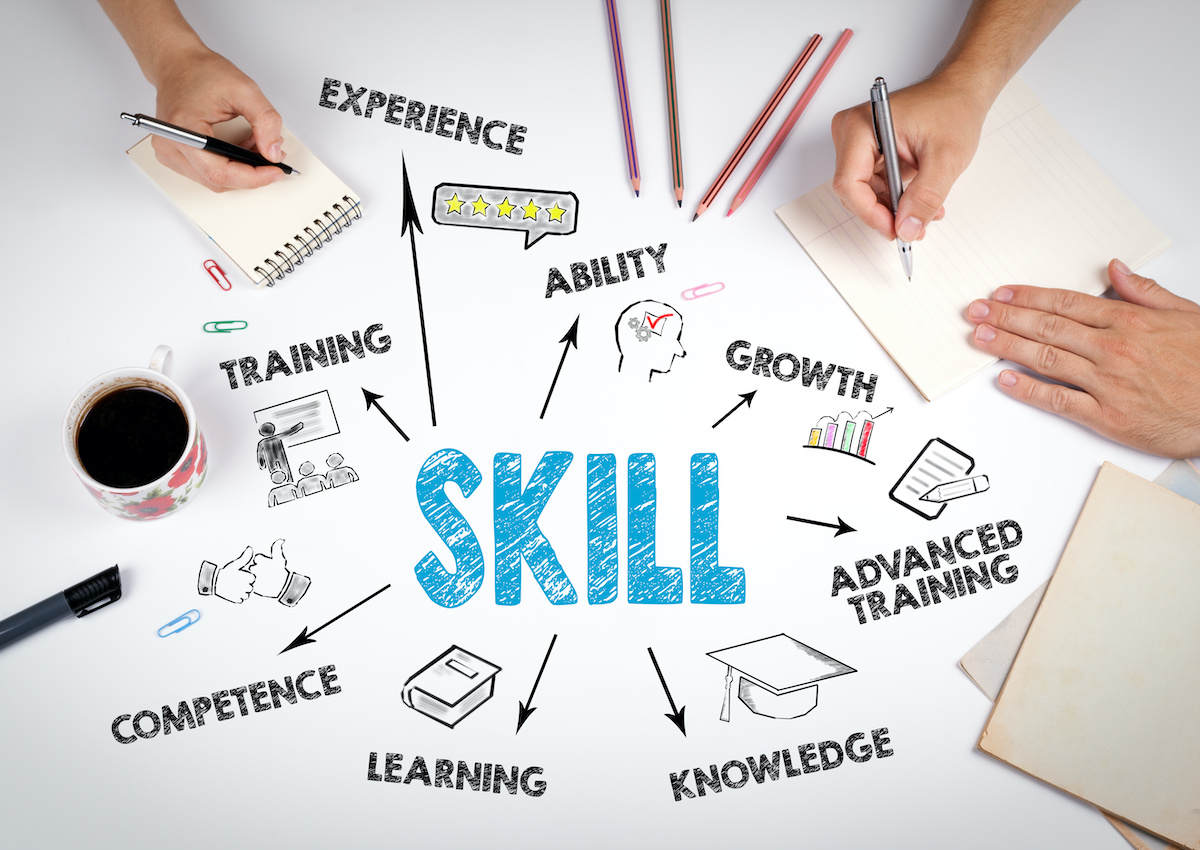skills to learn In the dynamic landscape of today’s job market, staying relevant is paramount. The skills that were once deemed essential can swiftly become obsolete, making it imperative to continually seek out and cultivate new skills to learn. Whether you are a recent graduate, a mid-career professional, or someone contemplating a career pivot, honing your abilities can significantly impact your career trajectory. This article delves into the skills to learn that are currently in high demand, offering insights into how you can elevate your career prospects and thrive in this ever-evolving environment.

The Importance of Continuous Learning
In an age characterized by rapid technological advancements and shifting workplace paradigms, the necessity for continuous learning cannot be overstated. Organizations are increasingly seeking individuals who exhibit a commitment to self-improvement and adaptability. This necessitates an understanding of which skills to learn to remain competitive.
The World Economic Forum’s Future of Jobs report underscores the significance of upskilling, highlighting that approximately 50% of all employees will require reskilling by 2025. Thus, proactive learning becomes not just a personal goal but a professional imperative.
Identifying In-Demand Skills
Before embarking on a learning journey, it is crucial to identify which skills to learn are currently sought after in the job market. Here are some categories of skills that are gaining traction:
- Digital Literacy
- Data Analysis
- Communication Skills
- Emotional Intelligence
- Project Management
Let’s explore each of these categories in detail.
1. Digital Literacy
In an era dominated by technology, possessing a robust foundation in digital literacy is essential. This encompasses not just basic computer skills but also an understanding of various software applications, cybersecurity principles, and online communication tools.
The digital landscape is ever-changing; thus, the skills to learn within this domain include proficiency in cloud computing, social media management, and digital marketing. As businesses transition to remote or hybrid models, digital literacy becomes the cornerstone of productivity and collaboration.
2. Data Analysis
The ability to interpret and leverage data is increasingly invaluable across industries. Organizations are inundated with vast amounts of data, and professionals who can analyze and extract meaningful insights are in high demand.
Understanding data visualization tools like Tableau or software like Excel is pivotal. Moreover, learning programming languages such as Python or R can significantly enhance your analytical prowess. As data-driven decision-making becomes the norm, honing your data analysis skills to learn can set you apart in the job market.
3. Communication Skills
Effective communication is the bedrock of successful collaboration in any workplace. While verbal and written communication skills have always been essential, the modern professional must also master digital communication tools.
This includes knowing how to engage in virtual meetings, utilize project management software, and maintain professionalism in emails. Additionally, refining public speaking and presentation skills can enhance your visibility and influence within your organization.
4. Emotional Intelligence (EI)
In an increasingly interconnected world, emotional intelligence has emerged as a critical competency. EI encompasses self-awareness, empathy, and interpersonal skills, allowing professionals to navigate complex social environments.
Organizations value leaders who can foster a positive workplace culture and manage conflict effectively. Therefore, developing your emotional intelligence is one of the most impactful skills to learn, particularly for those aspiring to managerial or leadership roles.
5. Project Management
The ability to manage projects efficiently is a highly sought-after skill in various sectors. Understanding project management methodologies, such as Agile and Scrum, can significantly enhance your career prospects.
Certification programs, such as the Project Management Professional (PMP) credential, can provide you with the foundational knowledge and skills necessary to lead projects successfully. In a world where projects are often cross-functional and global, mastering project management is an invaluable addition to your skillset.
How to Cultivate These Skills
Having identified the skills to learn, the next step is developing a strategy to acquire them. Here are several approaches to consider:
Online Courses and Certifications
The digital age has made learning more accessible than ever. Platforms like Coursera, Udemy, and LinkedIn Learning offer a plethora of courses on various topics, from digital marketing to project management.
Many of these courses come with certification upon completion, adding credibility to your resume. When selecting courses, opt for those that are well-reviewed and provide practical, hands-on experience.
Networking and Mentorship
Engaging with industry professionals can provide invaluable insights into the skills currently in demand. Networking allows you to learn from others’ experiences and can even lead to mentorship opportunities.
A mentor can guide you on which skills to learn specific to your career goals and can offer advice on overcoming challenges in your professional journey.
Practical Experience
Theory is important, but practical application solidifies learning. Seek opportunities within your current role to apply new skills. This could involve volunteering for projects that require data analysis or offering to lead team meetings to enhance your communication skills.
Additionally, consider internships or freelance projects that align with your desired skills to learn. Real-world experience not only reinforces your knowledge but also enhances your portfolio.
Continuous Self-Assessment
Regularly assessing your skills and progress is crucial for growth. Set specific, measurable goals for the skills to learn and track your advancement. Utilize self-assessment tools or seek feedback from peers and supervisors to gauge your improvement.
This reflective practice will help you identify areas for further development and keep you motivated on your learning journey.
The Role of Soft Skills
While technical skills are essential, soft skills are equally critical in today’s workplace. Employers are increasingly prioritizing candidates with strong interpersonal abilities, adaptability, and problem-solving capabilities.
Cultivating Soft Skills
Here are some soft skills that are imperative to master:
- Adaptability: The ability to pivot and adjust to new situations is invaluable, especially in a rapidly changing job market.
- Critical Thinking: Analyzing information and making informed decisions is crucial in a data-driven world.
- Collaboration: Working effectively with others, especially in remote or hybrid environments, is key to achieving collective goals.
Integrating the development of soft skills alongside technical abilities will position you as a well-rounded candidate in the eyes of employers.
The Future of Work
As we look to the future, the landscape of work continues to evolve. Trends such as artificial intelligence, automation, and remote work are reshaping the skills required in various industries.
Staying abreast of these trends is crucial for identifying which skills to learn. Engage with thought leaders in your field, read industry publications, and participate in webinars to remain informed about emerging skill sets.
Embracing Lifelong Learning
Ultimately, the most successful professionals are those who embrace lifelong learning. The commitment to continuous improvement not only enhances your career prospects but also enriches your personal growth.
Consider adopting a growth mindset, which fosters a love for learning and resilience in the face of challenges. This mindset will encourage you to view obstacles as opportunities for development, thereby propelling you toward greater success.
skills to learn
Elevating your career through the acquisition of in-demand skills to learn is a strategic endeavor that can yield significant rewards. By identifying the skills that are relevant to your industry, committing to continuous learning, and cultivating both technical and soft skills, you position yourself as a competitive candidate in today’s job market.
Remember, the journey of skill development is not a sprint but a marathon. Embrace the process, seek out opportunities, and remain adaptable to the ever-changing landscape of work. As you embark on this journey, you will not only enhance your career prospects but also gain the confidence to navigate the complexities of the modern workplace with grace and resilience.

More Stories
Why Technical and Vocational Education Unlocks Extraordinary Opportunities for Joyful, Confident Learners
The Surprising Benefits: How Specific Vocational Preparation Empowers Students for Extraordinary Success
How Trade School Graduation Unlocks Amazing Opportunities Through Powerful Vocational Education